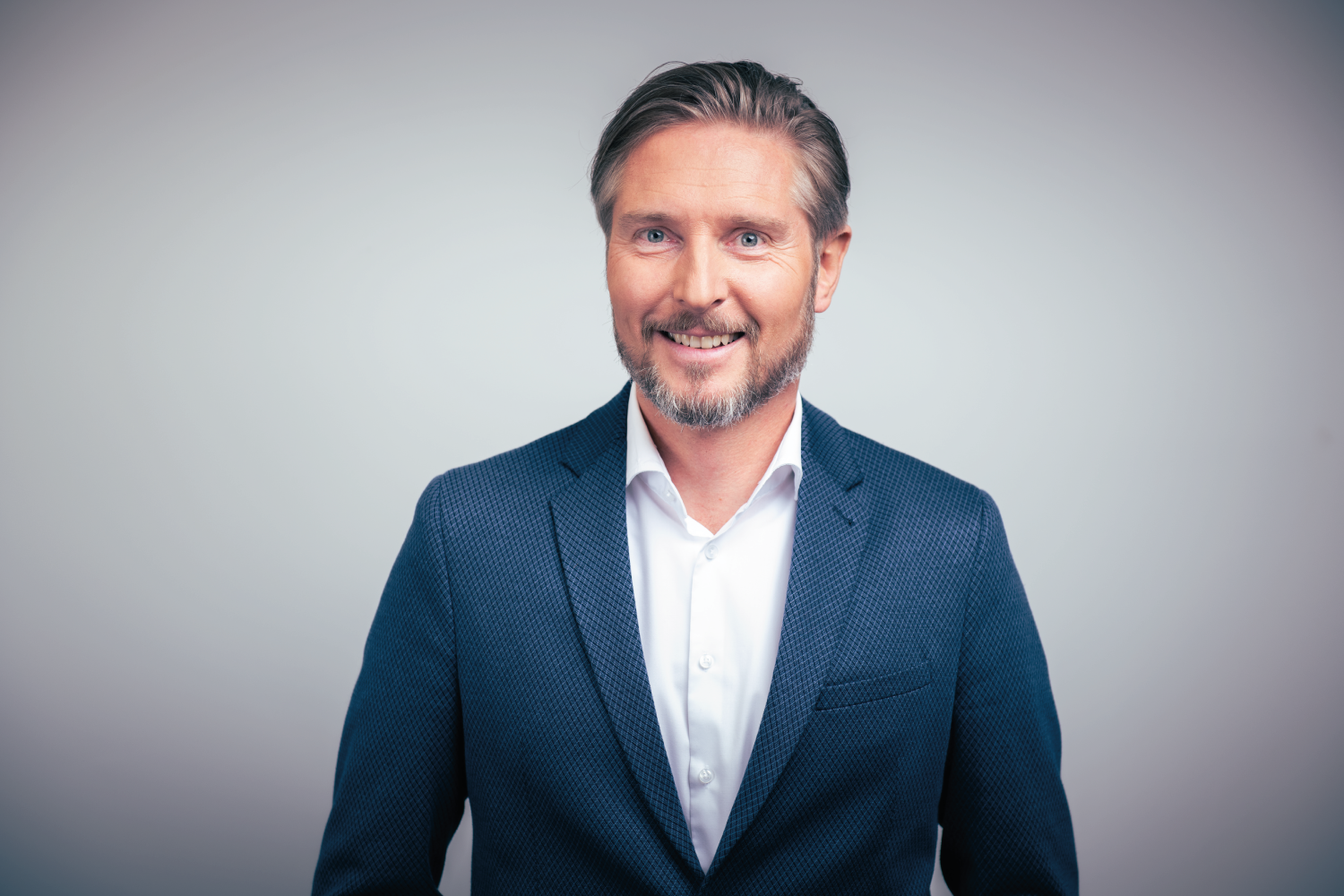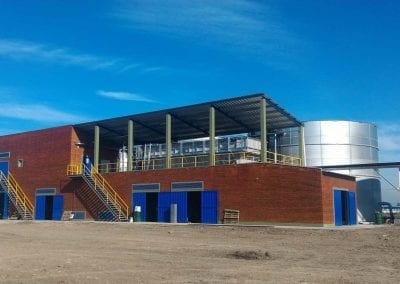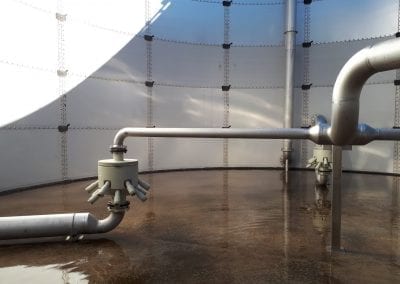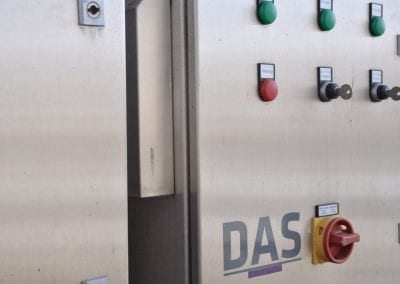Expanding Capacity in Beverage Manufacturing Requires the Adaptation of Wastewater Technology
The treatment of wastewater in the beverage industry usually has to manage unstable water flows. In the case of the South American soft drink manufacturer Refres Now S.A. significantly increasing manufacturing volumes also had to be faced. The new wastewater system was put in to operation in October 2017.
Clever Wastewater Treatment for Production Expansion
When discharging wastewater into public sewers or into natural waters, legal limits for dissolved organic compounds must be respected depending on local conditions. In particular, the amount of organic matter detected as degradable COD (Chemical Oxygen Demand) is an important criterion. Due to the high oxygen consumption in its microbiological decomposition,
increased organic load leads to a massive disturbance of the biological balance. If the specified limits are exceeded, usually high pollution surcharges accrue. Many companies in the industry therefore decide to invest in their own wastewater treatment securing their own standards of environmental awareness.
From Manufacturing into the River
The beverage producer Refres Now S.A. has heavily expanded its capacities at its La Matanza location near Buenos Aires and is now operating one of the largest facilities for soft drink production in Latin America. Daily, the company produces more than ten different products with a total volume of more than 3.5 million liters. As the volume of production increased, sewage technology also had to be adapted as wastewater was to be discharged into the nearby river in accordance with legal limits. Refres Now S.A. has a long-term relationship with DAS Environmental Expert and relies on the expertise of this long-standing partnership. The Dresden environmental experts already installed the previous wastewater system.
For the wastewaters to meet the legal limit values and to be released into the adjacent river, the new treatment plant is capable of reliably treating a volume stream of up to 80 cubic meters (21,134 gallons) per hour with a maximum COD concentration of 7.000 milligram per liter. Wastewaters with such a high COD concentration are usually pre-treated with anaerobic processes. The corporate leadership in La Matanza, however, requested that the company’s wastewater treatment was to exclusively use anaerobic methods. In addition, the system had to be automated, operated with a small amount of effort, and requiring the smallest space possible.
DAS Experts are Long-Term Partner for Wastewater Treatment
As a turnkey solution provider for wastewater treatment, DAS Environmental Expert GmbH was responsible for the consulting and planning. In order to deal with the unstable water flows a robust and easy-to-handle system was projected. The necessary equipment was supposed to be automated, space-saving and low-maintenance.
The efficiency of the biological processes is tested by the experts of DAS Environmental Expert advance. These methods exploit the great potential and biodiversity of naturally occurring microorganisms to reduce the organic load (COD and BOD concentration) to the required limits. Due to the variety of applications and the high efficiency in the degradation of organic ingredients in the water biologic methods often represent an efficient way of wastewater treatment.
MBBR Wastewater Technology at Refres Now S.A.
Due to the daily COD load of 7 tons, the small space requirements and the reduced sludge production the MBBR technology was realized.
In this process, biofilms of microorganisms growing on the surfaces of a filling material metabolize the pollutants. With more than 500 square meters (5.382 square feet) per cubic meter, the carrier material used by DAS Environmental Expert features an extremely large and specific surface area (1.000 m²/m³), thereby allowing exceptionally compact MBBR bioreactors.
For the enormous throughput values at Refres Now in LA Matanza four tanks have been installed. The wastewater flows into the mixing and equalization tank via an intermediate pumping station. Afterward, it reaches the reactors where microorganisms provide the COD degradation. Jet aerators circulate the wastewater inside the reactors and provide the oxygen supply.
YouTube is a service of YouTube LLC, a subsidiary of Google Inc, USA. You can find more information on data processing through this in our privacy policy. If you would like to watch this video, you also consent — revocable at any time — to the transfer of your data to the USA and the associated data processing in accordance with Art. 49 (1) a) DSGVO.
Circulation and Oxygen Injection with Jet Aerators
Jet aerators, especially used for this application, circulate the wastewater in the reactors and ensure the supply of oxygen. Using this technology, the circulation and the oxygen input can be controlled separately from each other. Due to the optimal adjustment of the oxygen and the efficient mixing of the fluid bed, the pollutants are degraded very effectively.
The MBBR technology will allow the Refres Now La Matanza location to further expand its production to include increasing wastewater amounts. An increase in the wastewater treatment system’s degradation capacity can easily be achieved by either increasing the carrier material volume or by adding an additional reactor to the modular-structured MBBR system.
Another option for treating wastewaters in the beverage industry is the Trickle-Flow-Reactor (TFR) technology. The trickle-flow principle uses a very light, small-grain carrier material that, within days, is covered by a highly active mixed population of bacteria that adapts to its respective conditions. The process ideally suits the treatment of smaller amounts of wastewater. Using TFR technology, DAS Environmental Expert optimizes two wastewater treatment plant for a large soft drink producer in Bolivia.
Your contact person for all questions on wastewater treatment



